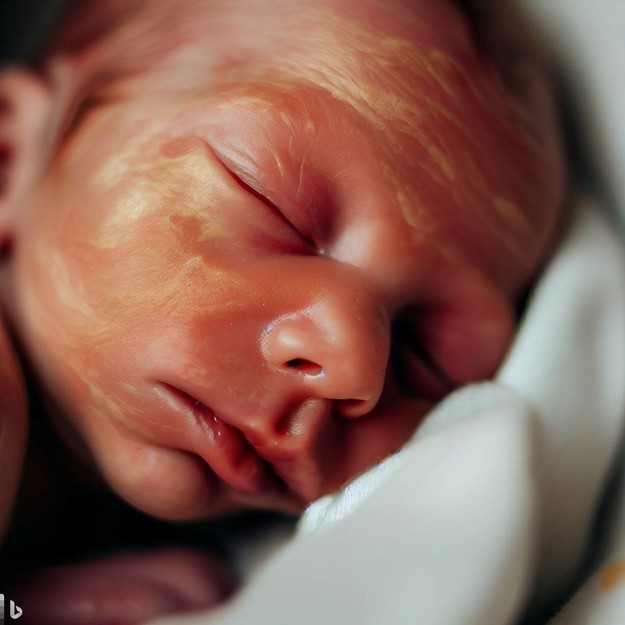The nurse is visiting a new mother who has been home with a new infant for 4 days. Which observation indicates that the mother's home environment was inadequately assessed prior to being discharged from the hospital?
The baby sleeps with the mother in bed.
The windows are covered with screens.
The kitchen has a refrigerator.
The baby has a changing area.
The Correct Answer is A
The baby sleeps with the mother in bed. This is because sleeping with the baby in the same bed increases the risk of sudden infant death syndrome (SIDS), suffocation, strangulation, and entrapment. The nurse should have assessed the mother’s sleeping arrangements for the baby and provided education on safe sleep practices before discharge. The nurse should advise the mother to place the baby on a firm surface, such as a crib or bassinet, in the same room but not in the same bed as the mother.
Choice B is wrong because having windows covered with screens is not a sign of inadequate home assessment. Screens can help prevent insects and other animals from entering the home and posing a health hazard.
Choice C is wrong because having a refrigerator in the kitchen is not a sign of inadequate home assessment. A refrigerator can help store food and breast milk safely and prevent spoilage and contamination.
Choice D is wrong because having a changing area for the baby is not a sign of inadequate home assessment. A changing area can help keep the baby clean and comfortable and prevent diaper rash and infection.
Nursing Test Bank
Naxlex Comprehensive Predictor Exams
Related Questions
Correct Answer is C
Explanation
Tachycardia. Tachycardia is a sign of hypovolemic shock from postpartum hemorrhage, which occurs when the blood volume is reduced and the heart rate increases to compensate for the low cardiac output and tissue perfusion. Tachycardia is usually the first sign of hypovolemic shock, as it can occur even before a significant drop in blood pressure or other symptoms.
Choice A. Hypotension is incorrect because it is a late sign of hypovolemic shock, which occurs when the compensatory mechanisms fail to maintain adequate blood pressure and organ perfusion.
Choice B. Cold, clammy skin is incorrect because it is a sign of peripheral vasoconstriction, which occurs as a compensatory mechanism to divert blood flow to the vital organs. However, it is not specific to hypovolemic shock and can occur in other types of shock as well.
Choice D. Decreased urinary output is incorrect because it is a sign of renal impairment, which occurs as a result of reduced blood flow to the kidneys. However, it is not specific to hypovolemic shock and can occur in other types of shock or renal disorders as well.
Correct Answer is B
Explanation
Jaundice in an infant who is 4-hr old. This is because jaundice is a yellow discoloration of the skin and eyes caused by high levels of bilirubin in the blood. Jaundice usually appears between the second and fourth day after birth and lasts for one to two weeks. Jaundice that appears within the first 24 hours of life is considered early-onset jaundice and may indicate a serious problem, such as an infection, a blood type mismatch, or a liver disorder. The nurse should notify the charge nurse of this finding and request a blood test to check the bilirubin level.

Choice A is wrong because a hematocrit of 60% in an infant who is 8-hr old is not abnormal. Hematocrit is the percentage of red blood cells in the blood. Newborns normally have higher hematocrit levels than older children and adults because they have more red blood cells at birth.
Choice C is wrong because a blood glucose fingerstick of 40 mg/dL for an infant who is 1-hr old is not abnormal.
Blood glucose is the amount of sugar in the blood. Newborns normally have lower blood glucose levels than older children and adults because they have less glycogen (stored sugar) at birth.
Choice D is wrong because acrocyanosis in an infant who is 2-hr old is not abnormal. Acrocyanosis is a bluish discoloration of the hands and feet caused by poor circulation. Newborns normally have acrocyanosis for the first few days of life because they are adjusting to the temperature outside the womb.
Whether you are a student looking to ace your exams or a practicing nurse seeking to enhance your expertise , our nursing education contents will empower you with the confidence and competence to make a difference in the lives of patients and become a respected leader in the healthcare field.
Visit Naxlex, invest in your future and unlock endless possibilities with our unparalleled nursing education contents today
Report Wrong Answer on the Current Question
Do you disagree with the answer? If yes, what is your expected answer? Explain.
Kindly be descriptive with the issue you are facing.
